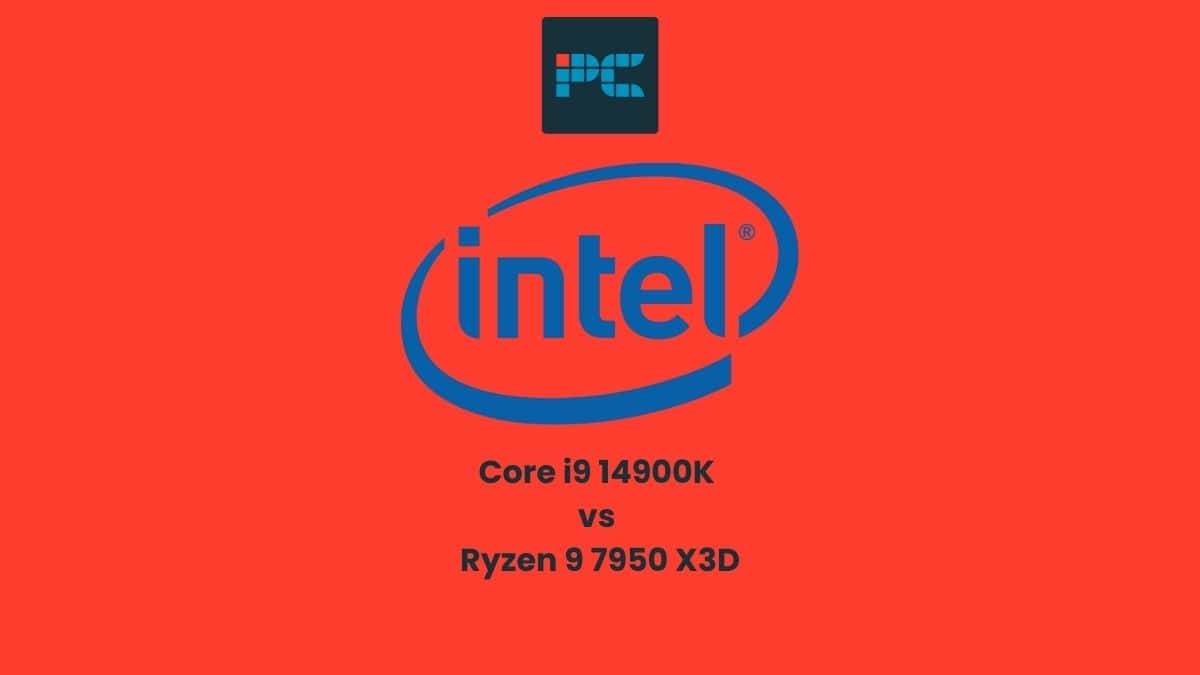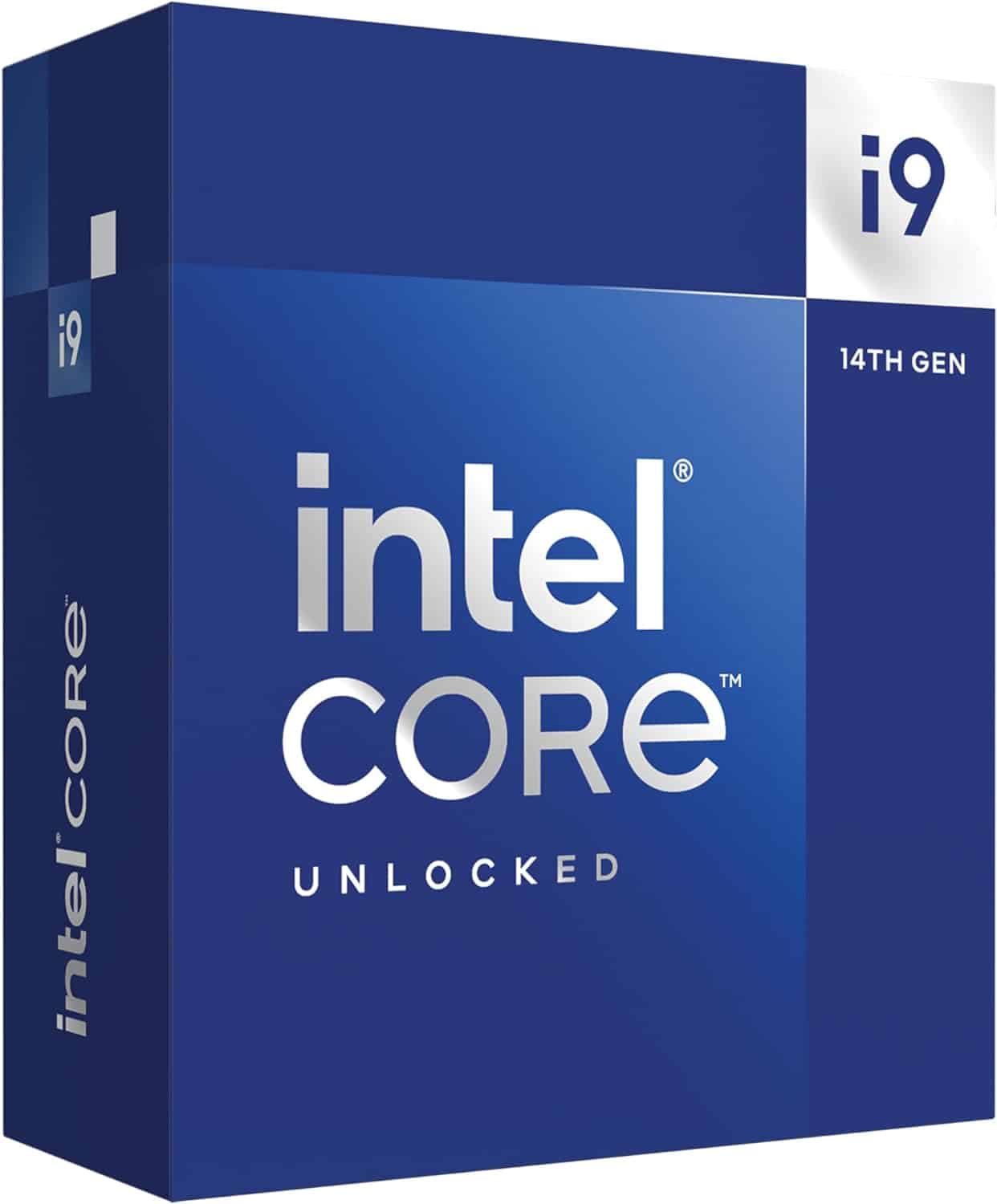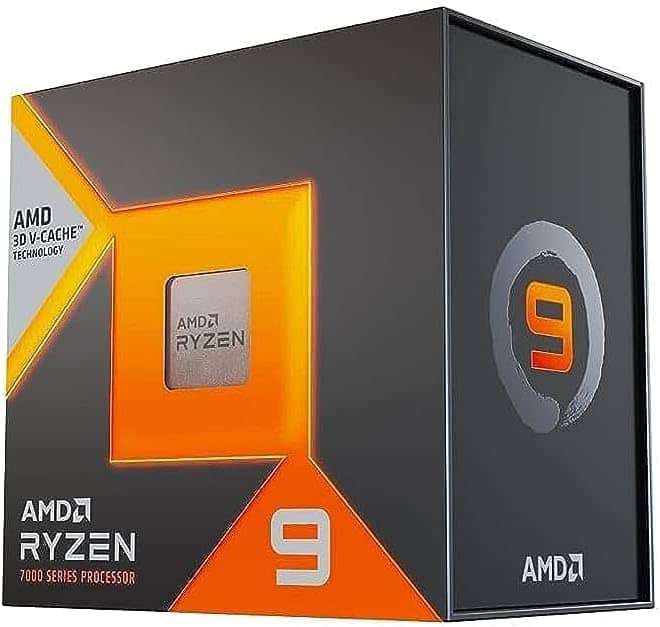Intel Core i9 14900K vs Ryzen 9 7950X3D – Raptor or Zen?

Table of Contents
The battle between the Intel Core i9 14900K vs the Ryzen 9 7950X3D is an important one. As many celebrate the Ryzen 9 7950X3D for its groundbreaking cache memory improvements, asserting its position as a top-tier gaming CPU, Intel can now counter with the Core i9 14900K.
This showdown is set to provide clarity on where these tech giants stand in the ever-evolving landscape of CPU performance. This comparison will dive deep into the details, exploring whether Intel’s upcoming contender has the prowess to challenge or even outshine this esteemed Ryzen 9.
Intel Core i9 14900K vs Ryzen 9 7950X3D – Specs
When diving into the specifications of the Intel Core i9-14900K and the AMD Ryzen 9 7950X3D, it’s evident that each CPU has its unique strengths and design philosophies. The Intel Core i9-14900K boasts an innovative hybrid architecture, featuring a total of 24 cores – comprising 8 performance cores and 16 efficiency cores, resulting in 32 threads. The resulting strong multi-core performance is perfect for a high workload. This setup contrasts with the Ryzen 9 7950X3D’s straightforward 16 cores and 32 threads design.
Clock speeds present another distinguishing factor between the two CPUs. The 14900K starts with a base clock of 3.2 GHz and can surge up to a formidable 6.0 GHz boost. On the other hand, the 7950X3D commences at a higher base of 4.2 GHz, but its boost caps at 5.7 GHz.
| Specs | Intel Core i9 14900K | Ryzen 9 7950X3D |
|---|---|---|
| CORES | 8+16 (24) | 16 |
| THREADS | 32 | 32 |
| BASE CLOCK | 3.2 GHz | 4.2 GHz |
| BOOST CLOCK | 6.0 GHz | 5.7 GHz |
| L2 / L3 CACHE | 32 / 36 MB | 128 MB (L3) |
| TDP (PL1) | 125W | 120W |
| MSRP | $599 US | $600 |
However, the standout feature of the Ryzen 9 7950X3D is its impressive cache memory, particularly its L3 cache. While Intel’s 14900K offers a combined L2 and L3 cache of 68 MB, AMD’s chip dominates with a remarkable 128 MB of L3 cache, thanks to its infinity cache technology. This cache advantage shines most brightly in gaming environments, providing the 7950X3D a significant edge.
The thermal and power metrics are also worth noting. The 14900K has a slightly higher thermal design power (TDP) at 125W compared to the Ryzen’s 120W. Both CPUs represent the pinnacle of their respective lineups, and the choice will largely depend on your specific needs. However, for those prioritizing gaming, the Ryzen’s substantial L3 cache could be a game-changer.
Intel Core i9 14900K vs Ryzen 9 7950X3D – Performance indicators
Anticipation has been building ever since the leak by HXL revealed the performance benchmarks of Intel’s Core i9-14900K pitted against AMD’s formidable Ryzen 9 7950X3D. These top-tier chips represent the best from both Intel and AMD, making this face-off exceptionally noteworthy.
The leaked benchmarks zoom in on gaming performance at 1080P with high settings, ensuring the CPU is the primary focus. The Intel Core i9-14900K outperformed its AMD counterpart in 14 of the 25 games tested. It achieved impressive gains, as tested games like Metro Exodus (+23%), Starfield (+23%), and Total War: Warhammer (+22%) show. Meanwhile, the Ryzen 9 7950X3D took the lead in popular eSports titles, notably DOTA 2 and Fortnite.
Breaking down the numbers, the games showed the 14900K’s performance as a percentage of the 7950X3D’s, with 100% indicating parity. The Ryzen 9 7950X3D outpaced its Intel competitor in titles like DOTA 2 (77%) and Fortnite (82%). Conversely, the 14900K shone brighter in games such as Metro Exodus and Starfield, both at 123%. On average, the Intel Core i9-14900K delivered a performance that was 102% of the Ryzen 9 7950X3D, implying a slight edge.
In terms of value, the Intel Core i9-14900K’s performance, given its similar pricing to the Core i9-13900K and its average performance surpassing the Ryzen 9 7950X3D by 2%, seems to offer an attractive package. For those with an existing 12th Gen Intel setup, the 14900K promises a seamless upgrade. However, those contemplating a long-term investment may consider leaning towards the Ryzen 9 7950X3D, as the AM5 socket offers compatibility with future Ryzen CPUs.
While the Intel Core i9-14900K showcases its prowess in some games, the Ryzen 9 7950X3D can stand its ground, especially in titles popular in the eSports world. Both chips, priced closely, bring their unique strengths to the table, making the choice largely dependent on individual needs and future upgrade plans.
Intel Core i9 14900K vs Ryzen 9 7950X3D: Price
We know that pricing is a crucial factor that enthusiasts and gamers (like us) keenly observe. The Intel Core i9-14900K is now known to be $590. Contrastingly, AMD’s Ryzen 9 7950X3D carries a slightly steeper price tag of $600. Given the nearly neck-and-neck performance profiles of these two processors, the price points seem reasonable. Intel’s potential pricing is okay, as consumers will receive heightened performance, especially vs 13th gen, with a little more cost.
Another pivotal factor to consider, beyond the sticker price, is the upgrade path. For those already equipped with Intel’s ecosystem, the Core i9-14900K, with its LGA1700 socket, promises an easier transition. Users can effortlessly swap their existing 12th gen CPU for this newer 14th-variant.
Meanwhile, AMD aficionados eyeing the Ryzen 9 7950X3D need to be prepared for some added expenses. Anyone migrating from an older AMD generation to the 7000 series would require a motherboard upgrade to the AM5 socket. This factor, invariably, bumps up the total cost of ownership. Of course, if you’re looking for a new system now, AM5 is aa good way to go. The 14th gen Raptor Lake Refresh is likely to be superseded by a new architecture next year, so it makes less for long-term upgrades.
PC Guide view
In this tussle between heavyweights, Intel appears poised to reshape the gaming CPU landscape in the coming months. Its Core i9-14900K offers a compelling performance package that challenges AMD closely and with superior performance to many chips. But the Ryzen 9 7950X3D is still a fantastic gaming CPU in the market. Gamers and enthusiasts looking for the absolute pinnacle of gaming prowess right now with a supported upgrade path should lean towards the Ryzen. Yet, for those open to a potential new champion in the near future, and just keen on the best overall performance right now, you may want to buy an Intel 14th gen chip.


